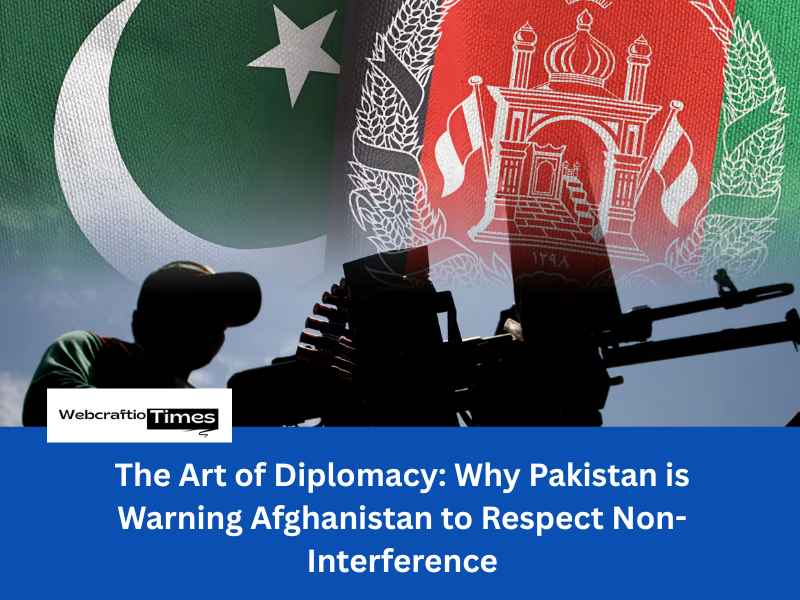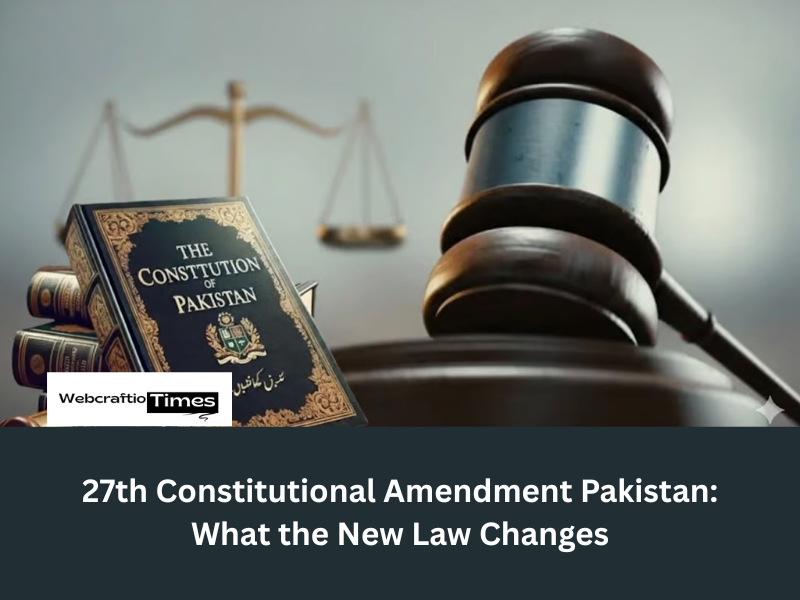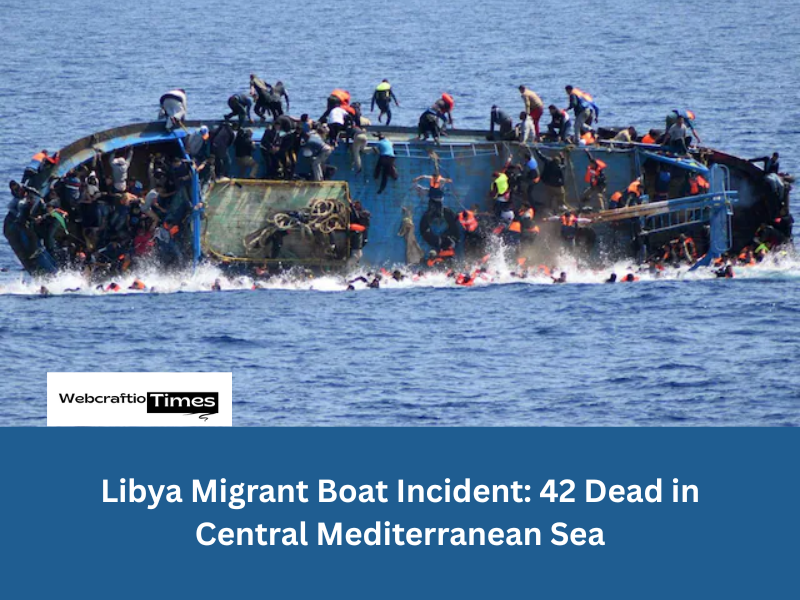The latest exchange between Pakistan and the Afghan Taliban regime, turning on Pakistan’s stern demand for “non-interference” in its internal affairs, marks a critical new low in an already volatile relationship. This is not merely a diplomatic squabble; it is a profound reflection of the geopolitical fallout from the Taliban’s 2021 return to power, a rising wave of cross-border terrorism, and the inherent friction between two ideologically linked but politically estranged neighbours.
The immediate trigger was the Afghan Taliban’s decision to condemn the Pakistani government’s police action against domestic protesters of the Tehreek-i-Labbaik Pakistan (TLP), an internal matter concerning a far-right religious-political group.
Islamabad’s furious reaction, captured in the Foreign Office’s forceful rebuke, laid bare the deep well of frustration over Kabul’s failure to honour its core commitment: the denial of Afghan soil to terrorist groups plotting attacks against Pakistan.
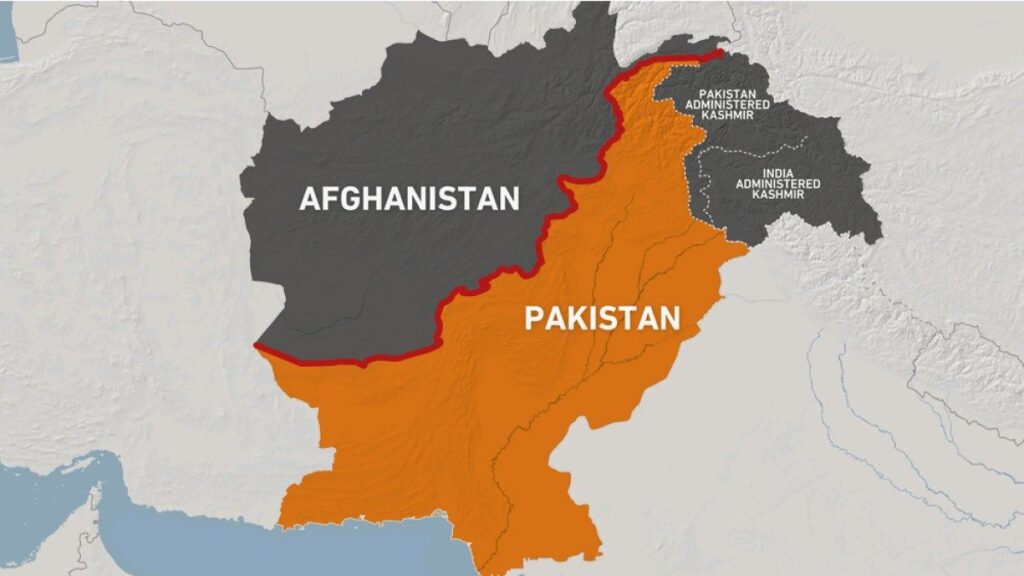
This article dissects the four central axes of this renewed conflict, the immediate spark of the TLP protests, the fundamental principle of non-interference, the broken promises of the Doha Agreement, and the existential threat posed by the Tehreek-i-Taliban Pakistan (TTP), arguing that a stable relationship is impossible until Kabul addresses Islamabad’s primary security concerns.
I. The New Protests: TLP, Gaza, and the Crossing of a Red Line
The most recent diplomatic firestorm was ignited by events that were, on the surface, purely domestic to Pakistan. In October 2025, the TLP, a hardline Barelvi Sunni political-religious group known for its history of disruptive and often violent protests, launched a “Gaza March” from Lahore intending to reach the US Embassy in Islamabad to protest against the US-backed Gaza ceasefire deal.
Read This : TLP Pro Palestine Protests: How Muridke Became Ground Zero for the TLP’s Gaza March.
The Pakistani government launched a swift and forceful crackdown to prevent the TLP march from paralyzing major cities. This operation, involving tear gas, police deployment, and mass arrests, was a matter of internal law and order aimed at managing a highly volatile domestic threat.
It was at this point that the Afghan Taliban’s spokesperson, Zabihullah Mujahid, intervened. He issued a statement expressing “profound sadness” over the violence, offering condolences to the families of the deceased, and urging the Pakistani government to cease “further acts of violence” and pursue dialogue.
For Pakistan’s Foreign Office, this was an unacceptable breach of diplomatic protocol and a blatant disregard for the principle of state sovereignty. An official spokesperson immediately rebuffed Kabul:
“We strongly encourage the Afghan spokesperson to prioritise issues pertinent to Afghanistan and refrain from commenting on matters outside their jurisdiction… The principle of non-interference in matters of other countries should be adhered to as per international diplomatic norms. Pakistan does not require outside advice on its internal matters.“
The context of this condemnation is crucial. By commenting on the handling of a major domestic political-security threat, the Afghan regime not only violated the spirit of good neighbourliness but appeared to lend moral support to a group known for its extreme ideology, an action deeply insulting to the Pakistani state.
II. The Fundamental: Independence and the Diplomatic Rules
The principle of non-interference is a bedrock of international relations, enshrined in the UN Charter. It holds that every state has the right to manage its own internal affairs without external pressure or comment. Pakistan’s invocation of this principle against Afghanistan is a formal and very public diplomatic warning.
Historically, the relationship between Islamabad and Kabul has been plagued by mutual accusations of interference:
- Afghanistan’s Historic Stance: Successive Afghan governments, including the current Taliban regime, have consistently refused to recognize the Durand Line (the 2,640-km border demarcated by the British in 1893) as a legitimate international boundary.
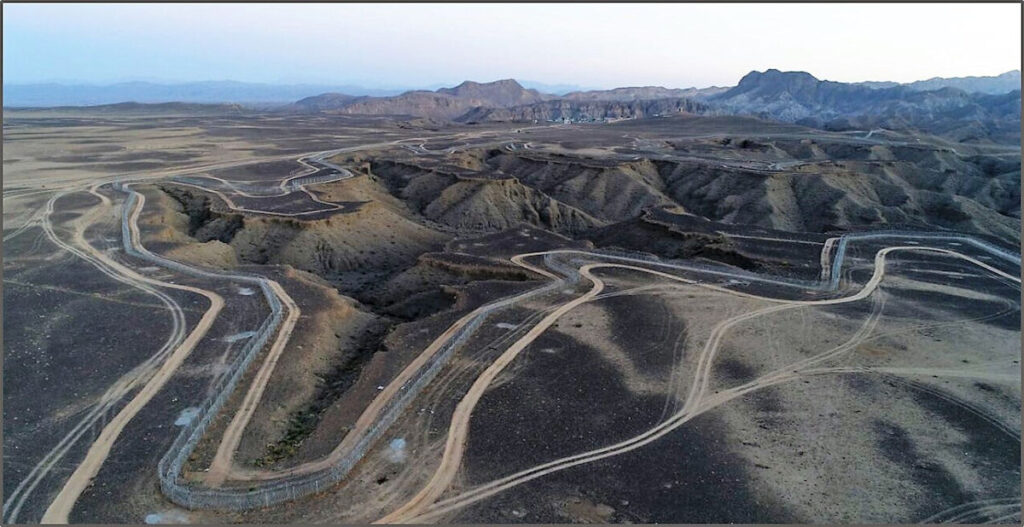
This non-recognition is itself seen by Pakistan as a permanent form of territorial and political interference. Furthermore, Afghan regimes have long supported the idea of “Pashtunistan,” a concept that challenges Pakistan’s territorial integrity in its western provinces.
- Pakistan’s Concerns: Islamabad’s decades-long support, first for the Mujahideen and later for the Afghan Taliban, was often guided by a doctrine of “strategic depth”, the desire to install a friendly regime in Kabul to mitigate threats from its western border and counter Indian influence. This, too, has been perceived by Afghans as a profound form of interference.
However, in this latest exchange, the context has shifted. Pakistan is facing a severe internal security challenge and is reacting to a verbal intrusion. The response signals that Pakistan is no longer willing to tolerate the Afghan regime’s moral grandstanding on Pakistani domestic politics. Especially when it comes at a time of escalating bilateral tensions and violence.
III. The Broken Promise: The Doha Agreement and the TTP Threat
The demand for non-interference is inextricably linked to Pakistan’s deepest grievance: the rise of terrorism emanating from Afghan soil. A matter on which the Taliban regime is widely perceived to have broken its most significant international pledge.
You May Like This : Close to Peace: Understanding the Israel-Hamas Peace Deal
This pledge is found in the US-Taliban Agreement for Bringing Peace to Afghanistan, signed in Doha in February 2020. The core counter-terrorism commitment made by the Taliban was:
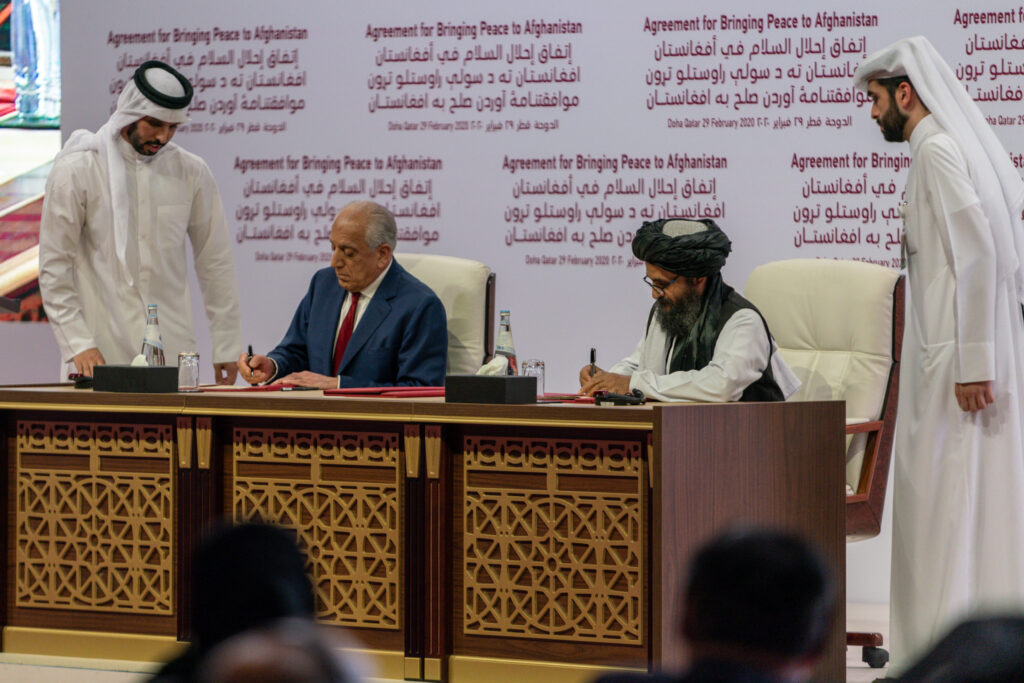
“The Taliban will not allow any of its members, other individuals or groups, including Al Qaeda, to use the soil of Afghanistan to threaten the security of the United States and its allies.“
Though not a signatory. Pakistan falls under the umbrella of “allies” and regional partners whose security was meant to be safeguarded. Islamabad had high hopes that the return of the ideologically aligned Taliban in August 2021 would finally lead to a stable western border and the expulsion of anti-Pakistan militants. Instead, the opposite has occurred:
TTP Resurgence:
The Tehreek-i-Taliban Pakistan (TTP), a separate but ideologically and tribally linked militant group, has been emboldened. Following the Taliban takeover. TTP leaders and fighters, many of whom were previously sheltered in Afghanistan. Have ramped up their operations inside Pakistan. Attacks have spiked dramatically, targeting security forces and civilians in the border regions.
Kabul’s Denial:
Despite clear evidence and UN monitoring reports of TTP safe havens in Afghanistan. The Afghan Taliban consistently deny hosting the group, instead dismissing Pakistan’s terrorism problem as a purely “internal matter”. A narrative that deeply offends Pakistan and is seen as an attempt to absolve themselves of responsibility.
Mediation Failure:
The Afghan regime initially attempted to mediate between Pakistan and the TTP. A move that Islamabad viewed as an elevation of a terrorist group to a legitimate negotiating partner, further blurring the line between a militant group and a state-level actor.
By issuing its condemnation of the TLP crackdown. The Afghan spokesperson essentially told Pakistan to look after its own internal law and order issues. Pakistan’s retaliation was to essentially tell Kabul the exact same thing. While simultaneously throwing their own domestic issues back in their face: “Focus on the formation of an inclusive and truly representative government [a key, unfulfilled promise of the Doha process], instead of engaging in baseless propaganda.”
IV. The Security Problem and the Way ahead
The current diplomatic crisis is occurring against a backdrop of the most serious cross-border military escalation in years, which has seen Pakistani forces and Afghan forces exchange heavy fire along the contested Durand Line, resulting in dozens of casualties on both sides.
Experts believe the current tension is the result of a profound strategic miscalculation by Islamabad. For decades, Pakistan maintained a policy of strategic patience and engagement with the Taliban. Believing this was the only way to manage its security. However, the Afghan Taliban, once a dependent proxy, is now an independent government prioritizing its own domestic narratives and regional image over Pakistan’s security.
For the Taliban, the TLP condemnation served multiple purposes:
- Domestic Popularity: It plays to a deeply anti-Pakistan sentiment among the Afghan public and some hardline Taliban elements who resent Pakistan’s historical interference and non-recognition of the Durand Line.
- Distraction: It shifts international and regional focus away from the TTP issue and the Taliban’s failure to form an inclusive government or protect women’s rights.
For Pakistan, the stern rebuke is an attempt to establish a new, clear-cut red line:
- Pakistan will not tolerate public criticism or commentary on its internal security operations, especially those related to managing domestic extremist groups.
- The diplomatic niceties are over; future engagement is contingent on concrete action against the TTP, in line with the spirit of the Doha Agreement.
The relationship has now entered a perilous phase. With border clashes escalating. The trade routes being shut, and diplomatic rhetoric reaching a fever pitch, the risk of miscalculation is high. Regional stakeholders, including China and Russia, have called for immediate de-escalation and dialogue. Recognizing that continued instability on the Pak-Afghan border has devastating consequences for regional security, connectivity, and counter-terrorism efforts.
Ultimately, Pakistan’s demand for non-interference is a call for the Afghan regime to become a responsible state actor. It is an acknowledgment that the shared ideological ties are no longer enough to secure the peace. Until the Afghan Taliban translates its Doha pledges into verifiable action against the TTP. The current diplomacy of discontent will only continue to fray into open conflict, threatening the stability of the entire region.
FAQs on Pakistan’s Non-Interference Urge to Afghanistan
1. What was the specific incident that triggered Pakistan’s warning to Afghanistan?
The trigger was a statement by Afghan Taliban spokesperson Zabihullah Mujahid. Who condemned the Pakistani government’s police action against protesters from the domestic religious-political group, Tehreek-i-Labbaik Pakistan (TLP). Pakistan viewed this as an unacceptable public interference in its internal law and order matters.
2. What does Pakistan mean by “non-interference” in this context?
Pakistan is demanding that the Afghan regime respect the principle of state sovereignty by refraining from making public comments, judgments, or criticisms about Pakistan’s domestic political, security, or legal affairs. It is a fundamental demand that one country should not intervene in the internal governance of another.
3. What is the main security concern Pakistan linked to this non-interference demand?
Pakistan directly linked the demand for non-interference to the issue of terrorism emanating from Afghan soil. It reminded the Taliban of its commitments under the Doha Agreement to prevent groups like the Tehreek-i-Taliban Pakistan (TTP) from using Afghanistan to launch attacks against Pakistan. Islamabad believes the Taliban is failing to honor this crucial security obligation.
4. What other issue did Pakistan urge the Afghan regime to focus on instead of Pakistani affairs?
Pakistan urged the Afghan regime to focus on issues pertinent to Afghanistan. Specifically mentioning the need for the formation of an inclusive and truly representative government in Kabul. This pointed to the Taliban’s unfulfilled commitments made to the international community regarding governance.
5. Has Afghanistan also accused Pakistan of interference?
Yes. The relationship is marked by mutual accusations of interference. Afghanistan has historically accused Pakistan of interference due to its support for various militant factions and its insistence on border management along the disputed Durand Line. The recent tensions also followed deadly cross-border clashes and Pakistani claims of striking terrorist targets inside Afghan territory. Which Kabul condemned as a violation of its sovereignty.

